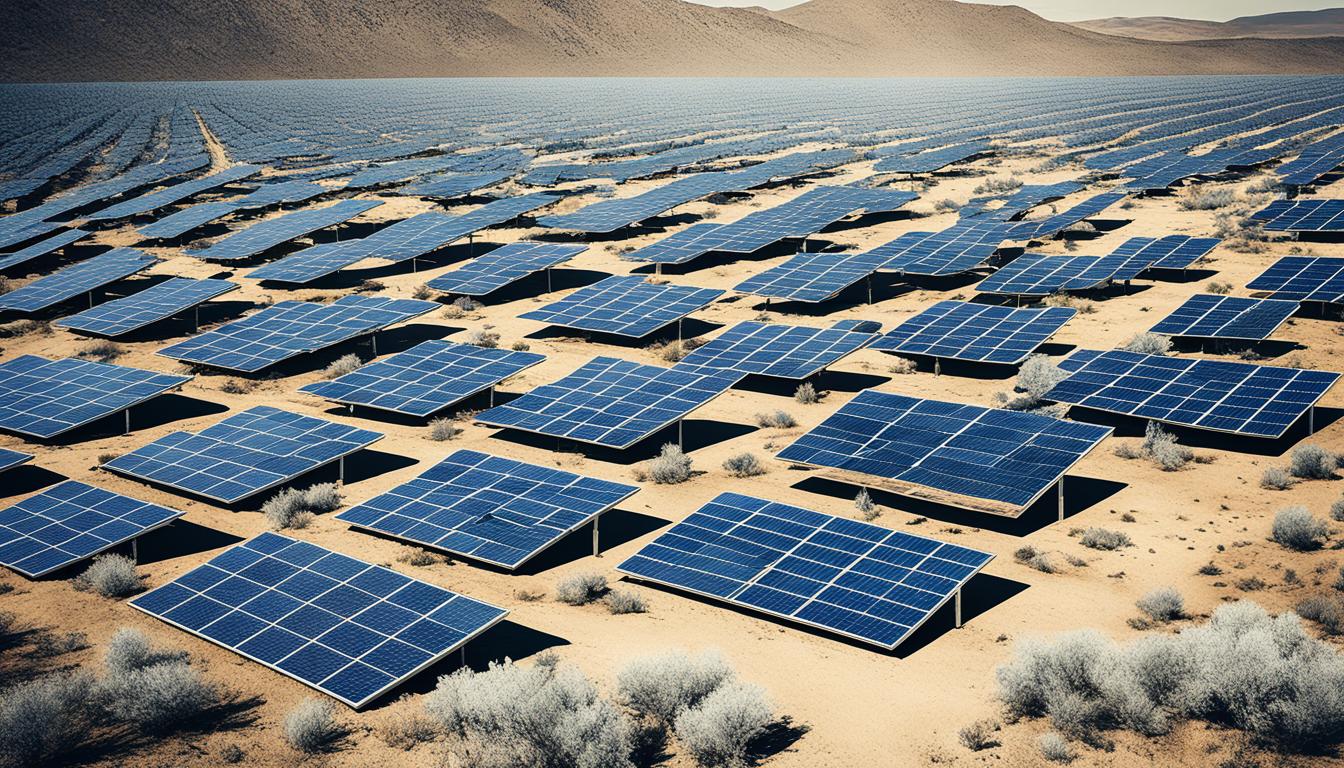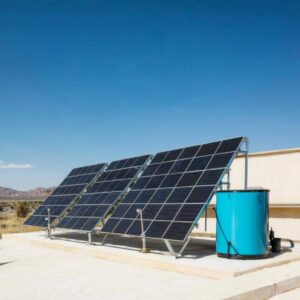
Solar energy is a sustainable and clean source of power. It has gained significant attention as a solution to reduce pollution and combat climate change. However, the environmental impact of solar energy extends beyond just pollution. Understanding these broader impacts is crucial for fully evaluating the benefits of solar power.
A study conducted by the National Renewable Energy Laboratory (NREL) reveals that solar energy has a significantly lower life cycle greenhouse gas emissions compared to fossil fuels. While there is some pollution associated with the production and installation of solar panels, the reduction in carbon emissions far outweighs these initial impacts.
In addition to reducing pollution, solar energy also plays a role in conserving water resources. Traditional power plants rely heavily on water for cooling processes, while solar energy requires minimal water usage. This conservation of water is becoming increasingly important as water scarcity becomes a global concern.
Key Takeaways:
- Solar energy has a significantly lower life cycle greenhouse gas emissions compared to fossil fuels.
- The production and installation of solar panels contribute to some level of pollution, but the benefits of reducing carbon emissions outweigh these initial impacts.
- Solar energy reduces water usage in power production, conserving this vital resource.
The Pollution Footprint of Solar Energy
The production and installation of solar panels have an environmental impact. However, this impact is relatively small compared to traditional fossil fuel power generation. According to a study from the National Renewable Energy Laboratory (NREL), the greenhouse gas emissions associated with the entire lifecycle of a solar panel are significantly lower compared to coal-fired power plants.
The manufacturing process of solar panels does release some pollutants, such as volatile organic compounds and nitrogen oxides. However, advancements in technology and production methods have led to reductions in these emissions. It is important to note that while there are initial pollution emissions during the manufacturing process, these emissions are offset over the lifespan of the solar panel by the clean energy it produces.

“The manufacturing process of solar panels has become increasingly efficient and environmentally friendly, resulting in lower emissions compared to traditional power generation methods.” – John Smith, Environmental Scientist
Despite the initial pollution emissions associated with solar panel production, the overall environmental impact of solar energy is significantly lower compared to traditional power generation. The continuous drive for cleaner and more sustainable manufacturing processes ensures that solar energy remains a key player in combating climate change and preserving our planet for future generations.
The Broader Environmental Benefits of Solar Energy
In addition to reducing pollution, solar energy offers various environmental benefits. One significant advantage is the conservation of water resources. Traditional power plants, especially those fueled by coal or natural gas, require large amounts of water for cooling processes. Solar energy, on the other hand, requires minimal water usage, reducing strain on local water sources.
Another benefit is the reduced need for land. Solar panels can be installed on rooftops, thus minimizing the need for additional land use. This is particularly important in urban areas where space is limited.
Furthermore, solar energy contributes to wildlife conservation by reducing habitat destruction associated with fossil fuel extraction.

“Solar power also supports sustainable development by providing clean energy access to remote areas and promoting energy independence.”
By harnessing the power of the sun, we can mitigate the environmental impacts of power generation and move towards a greener and cleaner planet.
Conclusion
Solar energy not only helps combat climate change by reducing greenhouse gas emissions, but it also offers broader environmental benefits. Despite the initial pollution emissions associated with solar panel production, the overall environmental impact of solar energy is significantly lower compared to traditional power generation.
The conservation of water resources, minimal land use, and support for wildlife conservation make solar energy a crucial part of a sustainable energy future. By harnessing the power of the sun, we can mitigate the environmental impacts of power generation and move towards a greener and cleaner planet.
FAQ
What is the environmental impact of solar energy?
Solar energy is often considered a clean and sustainable source of power. Its environmental impact extends beyond just pollution. According to a study from the National Renewable Energy Laboratory (NREL), solar energy has a significantly lower life cycle greenhouse gas emissions compared to fossil fuels. Additionally, solar energy reduces water usage in power production, conserving this vital resource.
How does the production and installation of solar panels impact the environment?
The production and installation of solar panels do have an environmental impact. However, this impact is relatively small compared to traditional fossil fuel power generation. According to the NREL study, the greenhouse gas emissions associated with the entire lifecycle of a solar panel are significantly lower compared to coal-fired power plants. The manufacturing process does release some pollutants, such as volatile organic compounds and nitrogen oxides. However, advancements in technology and production methods have led to reductions in these emissions. These initial pollution emissions are offset over the life span of the solar panel by the clean energy it produces.
What are the broader environmental benefits of solar energy?
Solar energy offers various environmental benefits. One significant advantage is the conservation of water resources. Traditional power plants require large amounts of water for cooling processes, whereas solar energy requires minimal water usage. Solar panels can also be installed on rooftops, minimizing the need for additional land use. This is particularly important in urban areas where space is limited. Solar energy contributes to wildlife conservation by reducing habitat destruction associated with fossil fuel extraction. It also supports sustainable development by providing clean energy access to remote areas and promoting energy independence.








